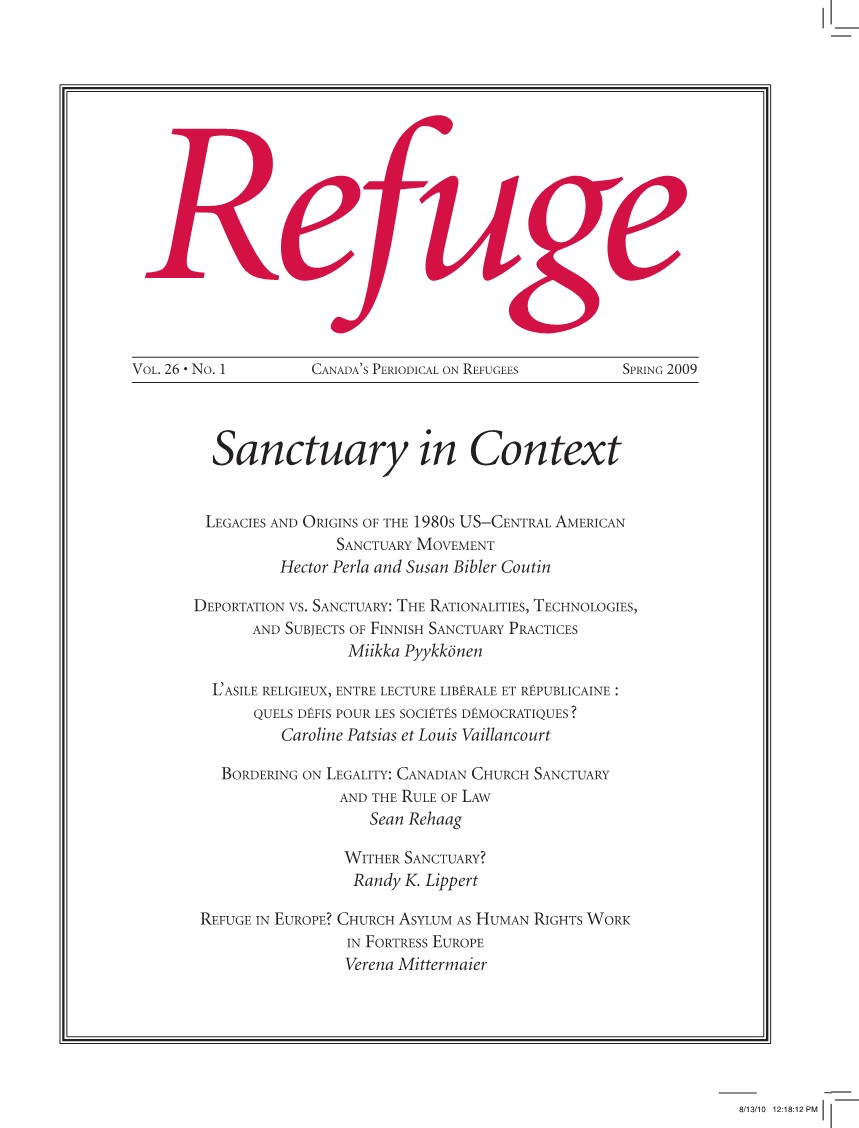Contesting the Shape of Political Space: An Investigation of the "Threat of Asylum" in Britain
DOI:
https://doi.org/10.25071/1920-7336.30614Keywords:
United Kingdom, asylum policy, securitization, political space, sovereign biopower, homo sacer, spaces of exceptionAbstract
Defined in terms of a national security discourse, Britain’s asylum policy facilitates a disturbing dissociation of the asylum seeker from the identity of the refugee. The roots of this discourse can, this paper argues, be understood if the asylum seeker is seen as the site of a clash between two conceptualizations of political space—one that sees only the international state system, marked by the rights of sovereign states and exclusive political spaces, and one that sees a more complicated global political structure, marked by spaces of danger and of opportunity, in which human beings, as such, have a right to demand hospitality and inclusion from the state. Aiming to understand this clash, and the possibilities for moving beyond it, this paper analyzes British asylum policy through the lens of Michel Foucault’s account of sovereign biopower in Society Must Be Defended, read together with Giorgio Agamben’s work on the homo sacer and spaces of exception. These texts point towards the counter-narrative of the asylum seeker who refuses to disappear into discourses of national security, and who suggests a “rival structure” of political space. Understanding this clash requires uncovering the violence, discernible in British asylum policy, which sustains the international state system and in doing so, creates and marginalizes the asylum seeker. This paper draws out the deeply challenging and complex nature of the “problem of asylum,” working against the simplification that a national security discourse imposes on the issue.
Metrics
Downloads
Published
How to Cite
Issue
Section
License
Copyright (c) 2010 Sarah Doyle

This work is licensed under a Creative Commons Attribution-NonCommercial 4.0 International License.
Refuge authors retain the copyright over their work, and license it to the general public under the Creative Commons Attribution-Non Commercial License International (CC BY-NC 4.0). This license allows for non-commercial use, reproduction and adaption of the material in any medium or format, with proper attribution. For general information on Creative Commons licences, visit the Creative Commons site. For the CC BY-NC 4.0 license, review the human readable summary.







